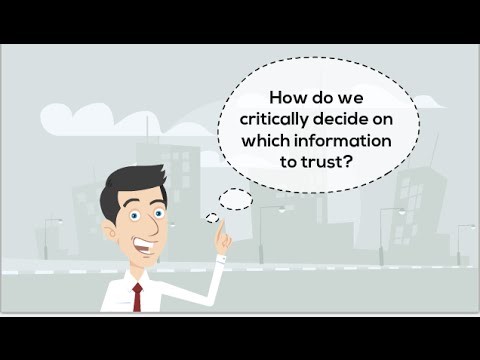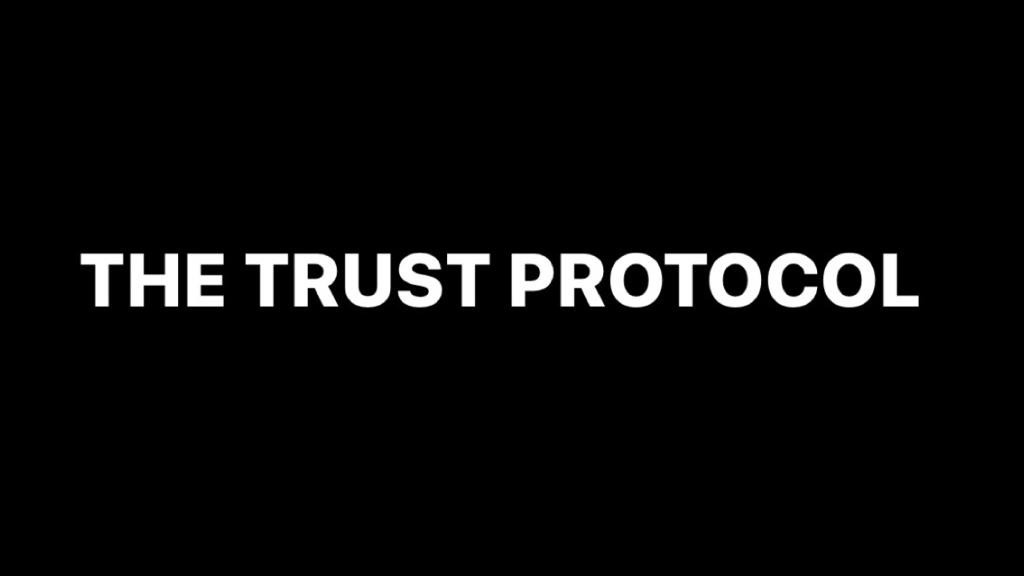The Internet connects billions of people around the world, and is great for communicating and collaborating online. However, because it was built for moving and storing information, and not value, it has done little to change the way we do business and protect our privacy. Now, for the first time in human history, two or more parties anywhere in the world can transact and do business peer-to-peer using the blockchain.
Many of us weren’t even born when the Internet went commercial in the early 1990s. Back then, we all thought the Internet would level the playing field. Everyone could participate in the global economy. That was the promise. The Internet would blow up the industrial paradigm where power structures were centralized, hard to break and even harder to change. For starters, many of us hoped for a more democratized media. “Old media” as we called it, was centralized; a one- way channel, and controlled by oligarchs. Its users were passive with no control and the barriers to entry were high. The Internet came along and entrepreneurs re- imagined media as open distributed and peer-to-peer. The global economy was also intended to be more inclusive. Low- cost computing and connectivity would allow everyone everywhere to be a consumer and a producer of content and services. These global marketplaces were to be meritocracies, where everyone could participate. If you were smart and hardworking- in, say India- your merit would bring you reputation. The world would be flatter, fair, more flexible, and more fluid. Most importantly, technology would bring wealth to everyone, not just a few. But does that sound like what’s happening in our world today? Some of it has come to pass.

The first four decades of the Internet have been great, for reducing the costs of searching and collaborating and exchanging information. The Internet has also lowered the barriers to entry for many new media and entertainment; new forms of retailing and organizing work and new digital ventures. Outsourcing has helped people in the developing world to join the global economy. But the Internet still has serious limitations.
For one, we still need intermediaries like banks and government agencies to establish our identities and to enable us to exchange value like money online. The same go-betweens collect our data for commercial gain, and for national security. Moreover, their cost structure excludes over 2.5 billion people from the global financial system, and they’ve grown more powerful overall, not less. The Internet has trouble preserving our privacy, establishing our identities, and then including all of us.
So, what happened? Well, it’s all about the centralization of control. Huge institutions now control what was supposed to be a shared global resource: The Internet. These companies maintain its infrastructure and extract a massive amount of data from us users. They write the algorithms in the apps, manage business and thus, oversee our daily lives. They’re using their power and influence over entire economies in society. Many of the early concerns raised by the early Internet pioneers have come true.
Gross domestic product is growing but job growth is pretty much flat. We’re creating more wealth, but we’re also seeing greater social inequality. Powerful tech companies have shifted from the open equal Web to exclusive walled gardens. They don’t just exclude people from the conversation, they sometimes kill the debate altogether. Corporate forces have seized many of these powerful peer-to-peer technologies, and they’re not leveling the economic playing field; they’re creating a big obstacle course instead.
The institutional control of our data threatens our privacy. Yes, governments of all kinds use the Internet to improve their operations and services. But they also use it in quite alarming ways. Even democratic governments use it to spy on citizens, harass dissenters and stay in power. They can learn almost everything about us from a handful of companies, not to mention what the companies themselves can learn or what any bad actors can learn by hacking into these systems. So, that brings us to the issue of security.

Technology doesn’t create prosperity any more than it destroys privacy. But technology is at the heart of just about everything good and bad in this digital age. The growth of online commerce creates more opportunities for cybercrime. Moore’s Law, the doubling of processing power every year, also, doubles the power of fraud and fraudsters and thieves. Let’s call them, “Moore’s Outlaws”, not to mention spammers, phishers, data kidnappers and cyberbullies. When it comes to establishing identity, we still don’t know if we’re dealing with a bot or a person, or for that matter, as the famous cartoon says, if you’re dealing with a dog. Yet, we sure do leave a big data trail behind us online.
Powerful, how companies or what we call ‘digital conglomerates’ now, like Alphabet, Amazon, and Apple, were once Internet startups. Today they are some of the largest companies in the world. They create tremendous value for us and most people love them. But they’re also capturing troves of data. They can create value for themselves. Netflix is more likely to recommend a movie you’ll enjoy, and that’s great. But it also makes data, this new asset class and one we really should be controlling. We should be deciding who gets what data, for what use, and under what terms. There’s got to be new approaches where we can access and even own our own data, use it to plan our lives, and even generate income for us. Oh, and also to protect our privacy.
Lastly, there’s the problem of exclusion. The problem isn’t just about online participation- although it is true that 45 percent of people on this planet are yet to have Internet access; those living under repressive governments have very restricted access, and two billion people can’t afford a bank account. How will the second era of the Internet help them?
Internet pioneers have been working with cryptography since 1981. But no matter how they set things up, there have always been leaks because third parties were involved. Paying with credit cards over the Internet was never completely secure, and users had to give away too much personal data to third parties.

They had to trust these third parties to protect it. Yet time and time again, those third parties proved vulnerable to security breaches; and when they were breached, everyone’s information was at risk. Additionally, transaction fees were too high for small payments. In 1993, the mathematician David Chaum came up with a new solution called eCash- a digital payments system. It made safe anonymous online payments possible; even small payments like pennies, nickels, and dimes. At the time, it looked like a promising solution. Microsoft and Netscape both wanted to include eCash in their browsers. But back then, online shoppers cared more about convenience than about privacy and security.
In 1998, Chaum’s company went bankrupt. Around that time, one of Chaum’s colleagues, Nick Szabo, wrote a short paper explaining the problem. He called it, “The God Protocol”. God, in this case, was a trusted third party in the middle of all transactions. God would treat everybody fairly, and not reveal anybody’s secrets. God was the ultimate trusted intermediary. Szabo’s point was powerful. Doing business on the Internet requires a leap of faith. Without the security we all need, we often have little choice but to treat these intermediaries as if they were ‘Gods’, impartial, and infallible. P.S. they’re not.
Case in point, the 2008 collapse of the financial markets occurred, and it turns out these intermediaries were not behaving with integrity; almost bringing down the global capital system. And amidst the market meltdown, someone named Satoshi Nakamoto outlined the protocol for a new electronic cash system. It was peer-to-peer, no intermediaries, and it introduced a cryptocurrency called bitcoin. Cryptocurrencies are digital currencies. They’re different from traditional money, what we call fiat currencies, because they’re not created or controlled by governments.
Instead of third parties or central banks, Satoshi’s protocol used distributed computations- many computers around the world all working on the same problem. Satoshi’s protocols set up rules to verify the data exchanged among billions of devices without going through a trusted third party. This breakthrough set off a spark igniting the whole computing community. It spread like wildfire to businesses, governments, privacy advocates, and more.
With peer-to-peer verification, there’s no need for a third party. No need for a mortal, fallible entity to act as God. We’re still grappling with what it means to create trust through clever code and we’ve never had this capability before. So, here are some of the things we know. We can now conduct trusted transactions directly between two or more parties. The transaction can be verified through mass collaboration rather than through banks. This collaboration is powered by collective self-interest rather than one’s company’s need for profit. It may not meet the almighty, but we think it’s pretty awesome. It’s a trustworthy global platform for peer-to-peer transactions. We’re calling it the Trust Protocol.

The Trust Protocol is the basis of more and more distributed ledgers called blockchains. The Bitcoin blockchain is the best known of these, and the largest by number of users. While the technology is complicated, the main idea is simple. Blockchains let people send assets directly and safely to each other without going through a bank, credit card company, PayPal, or a big social media company. Rather than the Internet of information, it’s the Internet of Value. It’s also a platform for everyone to know what is true, at least with regard to structured information and assets. At its most basic level, Blockchain is open-source code. Anyone can download it for free, run it, and use it to develop new tools for managing transactions online. And since anyone can develop it, it holds so much potential. It can be the basis for countless new applications, many we haven’t even thought of yet. Their capabilities could transform just about everything.
Liked the Article you just read? Show us your support by clicking that like button and sharing it with your friends! Also don’t forget to leave your thoughts about the article in the comment section below.
You can become a part of our mailing list by clicking here

